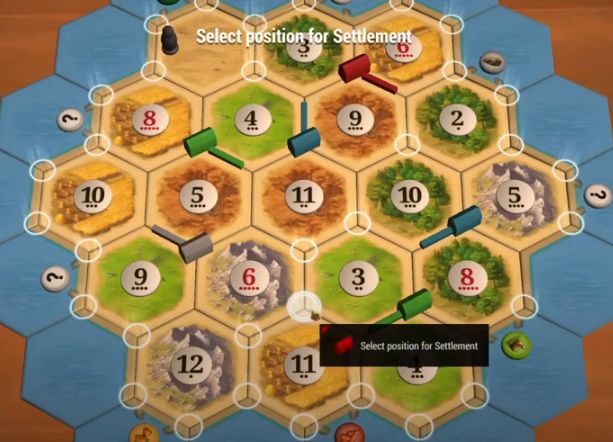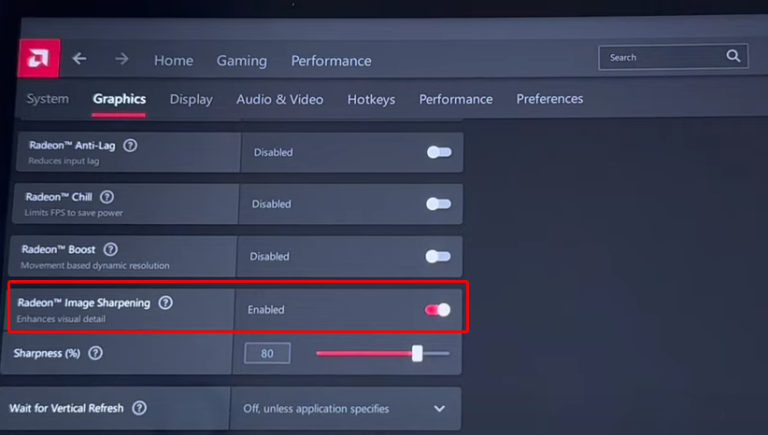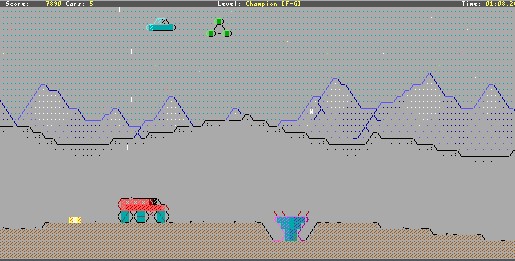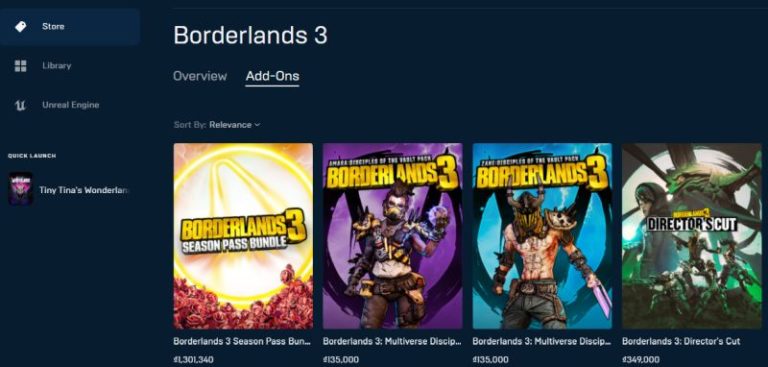50+ Video Game Terms and Slang
Video games are a fun and exciting hobby, but it can be hard to keep up with all the new terminology that comes out. The biggest question on every gamer’s mind is “What does ‘LOL’ mean?” or “How do I use the chat room?” The internet has a vast knowledge of gaming terms that often go unexplained. This blog post will help you become more familiar with some basic video game terminology and how to set up your own online account so you can join in on the fun.
Common Video Games terms
- AAA: This stands for “triple-A,” which is a term used to refer to video games that are of the highest quality.
- Aimbot: An in-game cheat or program created to automatically lock onto and fire at an opponent without any user input required.
- Aliasing: This occurs when there’s too much detail on the screen so that objects on the screen appear to be jagged or blurry.
- Armadillo: This is a small, armored animal found in North America and Mexico with a heavy shell that can roll itself into an almost impenetrable ball when threatened. In video games, this term refers to player who plays slowly.
- Avatar: This is a term used to describe the on-screen representation of a character in an online video game or virtual world, such as World of Warcraft.
- Bio: Short for “biography.” In video games this usually refers to text that provides information about the character’s life before they became who they are now.
- BMing: This is a term used to describe the act of bad-mannered or unsportsmanlike behaviour in an online video game.
- Brez: Short for “breath.” In video games this usually refers to when a player’s character accumulates enough energy so that they can use their superpowers, such as jumping extra high, running faster than normal, etc.
- Bug(s): A software error in a computer program which causes it not to work correctly and often requires debugging before it can be fixed. This term also has come to mean any technical glitch in general (i.e., traffic lights). In video games bugs are sometimes called glitches because they disrupt gameplay by providing unintended outcomes, which can be either good or bad.
- Camp: When players set up camp, they group together (usually as a team) at one spot on the map and defend it from incoming attacks. This is usually done when there are not many defenses left for that particular area of the map – in other words, when it becomes a “camp.”
- Cheese: This term typically refers to using an exploit found in video games to easily beat them without any effort required. In World of Warcraft this means taking advantage of programming oversights that weren’t meant for player use but still work anyway. For example, some people have used skeletons against bosses because their AI makes them ignore anything except living creatures within close proximity.
- Clan: This is a group of people who play together in an online game, usually through voice or chat. They can be organized by the type of games they enjoy (e.g., Call Of Duty Clan).
- Clanwar: When two clans go head-to-head to see which one will come out on top and take home bragging rights for their team, this is called a clan war.
- Console: A device that connects to your TV screen so you can use it as if you were playing the video game directly from its monitor instead of just watching someone else play it live via streaming services like TwitchTV.
- Cosplay: The art form where participants dress up as their favorite characters from pop culture/nerd culture and pretend to be them at conventions. It’s a lot like “role-playing.”
- CSGO: This stands for Counter Strike Global Offensive. This is one of my favorite games because it has amazing graphics and gameplay – plus I’m very good at playing it!
- Crossplay: This term refers to players with different video game consoles or platforms playing against each other in the same online match.
- DLC: This abbreviation stands for downloadable content. It’s a form of video game that can be downloaded and added onto the player’s original copy to expand the gameplay in some way, such as with new levels or missions.
- EAK: This is an acronym meaning “easy-to-understand knowledge.” In gaming it refers to guides which are designed for people who just started playing video games so they don’t have trouble understanding what they’re doing wrong when they get stuck on something like controls or matchmaking.
- Easter Egg: A hidden message inside a video game that usually requires very specific actions from you, the player, before you’ll be able to see it, whether through completing tasks without being seen by enemies (e.g., Uncharted’s treasure hunt) or inputting very specific commands. This term also refers to any hidden message in general, like the one you might find at the bottom of a cereal box.
- Escort Mission: In video games this is when your team has to take an NPC (non-player character) from point A to B and protect them on their way there without dying so they can get killed by enemies instead – it’s usually designed as more of a challenge than just going through normally. It also sometimes means when someone else makes sure that no one hurts you while walking somewhere together in real life; for example, if I’m wearing something expensive and want another person to walk with me because I’m afraid people will try to steal it, this would be called an escort.
- Farm: This means killing every single enemy in a game level or section again and again, usually for experience points or other kind of rewards like money. It can also refer to going back over the same area repeatedly without any particular goal in mind because you’re bored – that’s called “farming.”
- FF: An abbreviation meaning “friendly fire.” This happens when you attack your own teammate.
- FPS: A video game where your viewpoint is from the perspective of the player. This term is short for first-person shooter and it’s usually a military game where you’re running around shooting your enemies from that perspective instead of seeing them all on screen in front of you like with third person shooters, which are more often about zombies or fantastical creatures (e.g., Halo).
- FTW: This acronym means “for the win” and it’s usually used when someone is very happy about something. In gaming, though, this term refers to a victory condition in which you are required to eliminate all of your enemies or reach some other goal without any deaths on your team before time runs out – if you fail at that then it should say “FTL,” meaning for the lose instead.
- GG: This abbreviation originally meant good game but now can also mean get good as well depending on who uses it; this phrase has many different meanings so always be careful with what tone they use when saying GG because otherwise you might not know how they’re trying to convey themselves!
- GM (game master): A person overseeing an RPG session or who creates maps for an RPG session.
- GL: An abbreviation meaning “good luck.” In gaming, GL usually means something like a power-up or weapon that will help you so it’s said before the player is about to enter intense combat with enemies.
- Glass Cannon: This term refers to a character in an RPG game who has high offensive capabilities but low defensive ones; basically they’re very deadly when fighting other characters and sometimes mobs (e.g., World of Warcraft). This person could be considered overpowered compared to someone else because they can destroy things much more easily than others, but also at risk since their defense isn’t as good – this makes them fragile rather than tanky!
- Griefer: A person who intentionally makes the gaming experience of others negative and frustrating for their own enjoyment, like by stealing loot from other players in a multiplayer game or making it impossible to complete an objective. This term comes up often when people talk about online games where there aren’t any consequences for doing this because then the griefer can just continue on with these actions over and over again without being punished.
- GTA: This abbreviation stands for “grand theft auto.” It’s one of my favorite video game franchises!
- HP: This can refer to “health points” because RPG stands for role-playing game which means that someone who isn’t playing as themselves are taking on the identity of another person with different abilities and attributes – just like in real life! When it gets lower, they die; this is a very common concept that’s seen in many RPGs and fighting games where you have your own HP but also other enemies’ HP so when one of those two numbers reaches 0 then there will be either an enemy death (if both were at 0) or player death if theirs was still higher than their opponents’.
- HUD (heads up display): A display in a video game that is always visible on the screen and provides information or status about something. This can be for health, inventory, quests (e.g., Skyrim), etc.
- Lag: The delay between when an action takes place and when its effect happens; this is what players might experience if they’re playing online with other people who live at different distances away from each other so their connection speed will affect how well gameplay goes overall.
- Loot: The items or treasures that are found in games like RPGs and action-adventure games. These don’t always have to be physical objects though because sometimes they’re more of a currency – but it’s usually advantageous for the player to find things so they can level up, get stronger weapons, etc.
- MMORPG (massive multiplayer online roleplaying game): A type of RPG where there are many players all interacting with each other at once; this is different from single player RPGs since you’ll need a network connection and internet access for MMORPGs while those types don’t require either one! This also means that enemies will be tougher when playing an MMORPG than if someone was playing a typical single-player RPG.
- Monster: This term can mean two different things – it could refer to a creature that’s fought in role-playing games like RPGs or MMORPGs, but it also refers to the non-player character enemies you find within video game levels; these are usually stronger than normal mobs (e.g., World of Warcraft) and have more HP than regular characters! This is because they’re designed for players who play through this level up until a certain point where there might be an enemy blocking their way so they need to get past them before continuing on if they want to keep going, whereas other monsters would provide very little challenge later in the game.
- Nerf: The opposite of “buff” when something gets made weaker or less effective in some way. This can happen to enemies before they’re released, for example; the type of difficulty may be adjusted so that it’s not too difficult and there aren’t any exploits seen later on when people are trying to play through this video game – but sometimes a nerf is also done intentionally because someone might think an enemy was too strong!
- NPC (non-player character): A non-human entity found within games like RPGs where these characters have dialogue options and actions which differ depending on your interactions with them; many NPCs will help you out if you talk to them even though their role is very minor in terms of what they provide players who want more control over things.
- POV: It stands for point-of-view and is used to describe what the protagonist sees. The camera will typically be placed in a way that you can see where they’re looking, so it’ll change position based on this; if there are others around them then those characters might move too!
- Pwned: This term means “owned” or defeated within games like MMOs because of how much damage has been dealt – e.g., someone could say something along the lines of “I pwned these guys!” (e.g., League of Legends)
- Ragequit: When somebody gets angry with their game and leaves as a result. This happens when things aren’t going well for them through some event(s) that’s happened. In these situations, the player might be frustrated enough to quit out of frustration rather than continuing on and trying to do better!
- Respawn: This is a term for when something reappears after it had been killed or destroyed in some way; this can happen over time (e.g., World of Warcraft) but sometimes there are also respawn points which restore HP/MP if you’re playing a game like an RPG where levels are gained by defeating enemies (e.g., Final Fantasy).
- RPG: It stands for role-playing game because players will usually create their own character with attributes such as defensive stats, offensive stats, etc.; then they’ll level up throughout the course of gameplay so that the protagonist is able to stay alive and fight against enemies.
- Sandbox: A game with minimal restrictions in terms of how you can explore the world or what type of interactions are available; this term will typically be used for games like Minecraft because there’s an infinite amount of items which players can find as they go through the game – so it’s not a linear story that has set events, but instead players have control over their own destiny! This is different from other types of RPGs where these narratives are pretty much fixed throughout gameplay.
- Server: This refers to when one player interacts with another within online video games such as MMORPGs (e.g., World Of Warcraft) since each server might only hold up to 50-100 people at a time; these would be filled up quickly if they didn’t have any servers!
- Spam: To repeat something over and over, usually without giving the other person a chance to respond at all. For example, somebody might spamming another player in an online game by continuously hitting them with their weapon or moving next to them so that it’s hard for them to move around. This also applies when messages are sent repeatedly within games like MMOs – e.g., someone could say “I hate you” before every message they send during a chat session because this will make things very difficult for whoever is on the receiving end of those messages!
- Spawn: When enemies reappear after being defeated (e.g., Killing Floor) or when players in an online game are restored after they’ve been defeated; this term is often used for games that have gameplay mechanics such as the respawn system which has its own rules and limitations. I’ll talk about how these work later, but you need to know what a “spawn point” refers to!
- Spawn Point: A place where enemies can spawn if there’s not some limitation placed on them – e.g., less than 100 spawned per day (e.g., Killing Floor). Some people might also refer to this as a spawning location since it becomes based off of certain things like time/day/location so that we don’t end up with too many enemies on screen at once due to their numbers.
- Tower: This is a defensive structure that usually has some sort of weapon attached to it in order to defend against enemies – e.g., the tower on top of any castle; this might be used for games like Clash of Clans which doesn’t include much strategy other than attacking towers so players can get better equipment! However, I haven’t seen too many examples outside of these types game because they’re really just meant as an interactive object rather than being something you have control over when playing the game itself.
- Wall Hop: When somebody jumps up onto a wall and then off it again (e.g., Super Mario Bros).
- Zerg: To attack without thinking about what your opponent will do next or if there’s any way for them to counter attack; this term will typically be used in games like DOTA or League of Legends where the “zerg” is a type of strategy that’s solely focused on eliminating the other players as quickly as possible.
- Zoning: When an area (e.g., Soul Calibur) can only hold so many enemies at once – e.g., if there are too many then they’ll start pushing against each other and it would become difficult to move around! This also applies to when people talk about how certain bosses have their own specific zones which you’re not allowed into unless you want them attacking you immediately due to their large size/reach, etc.; these types of things come up frequently in RPGs.




